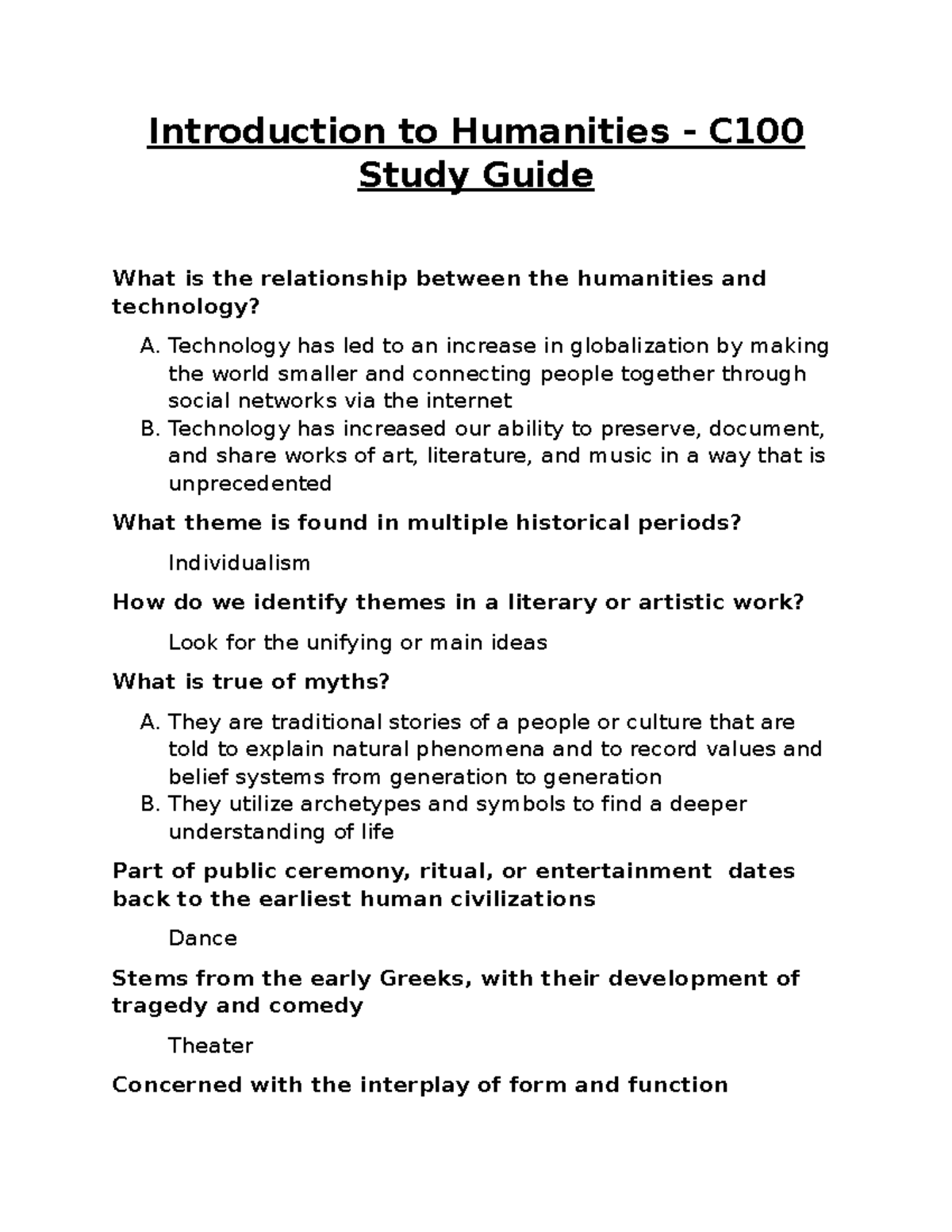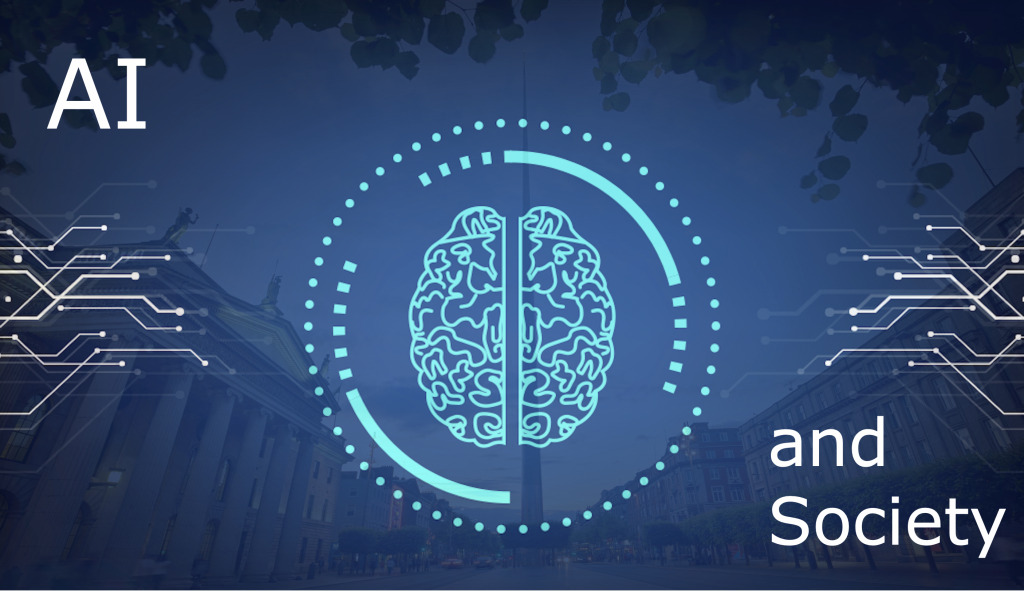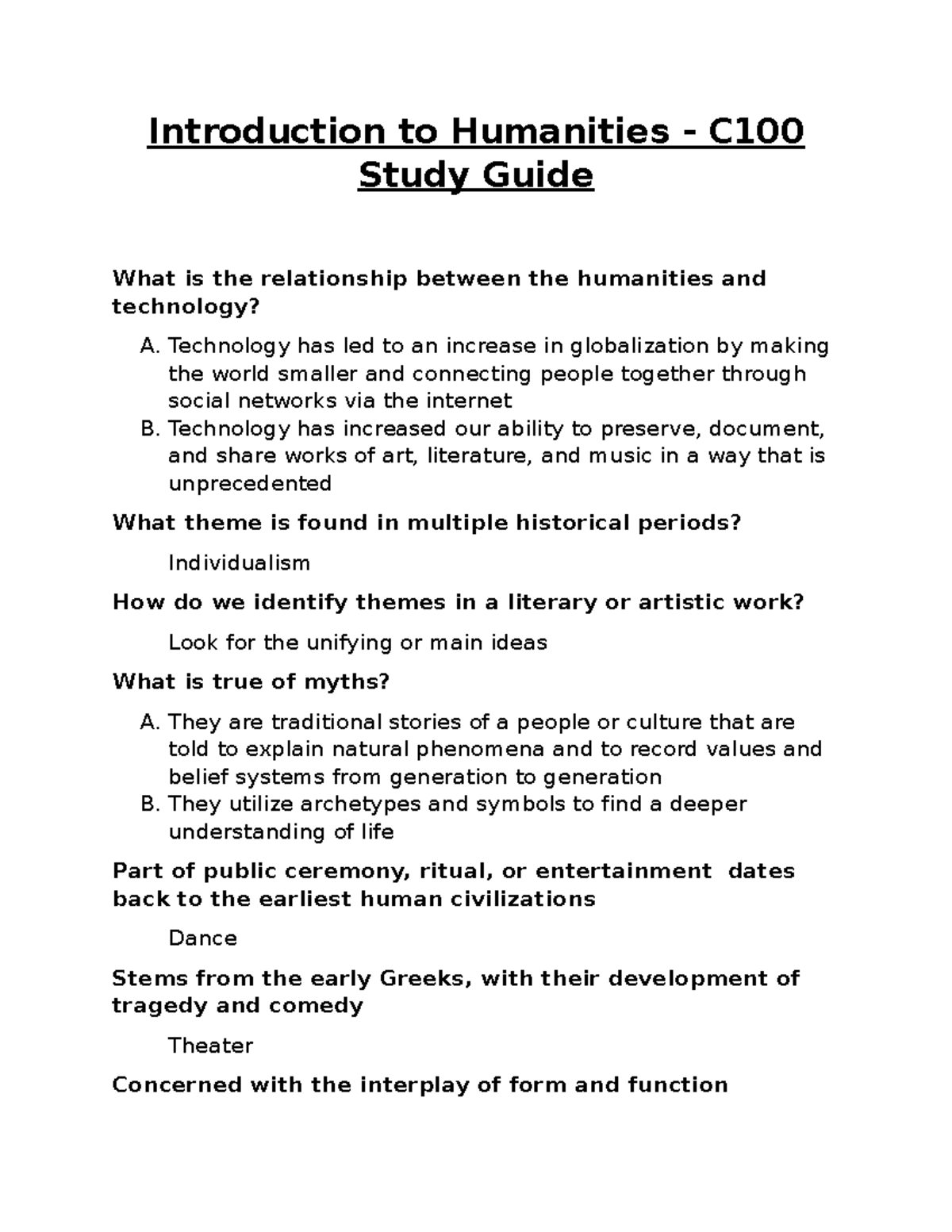Introductory humanities courses are more than just academic requirements; they serve as essential gateways to understanding the complexities of human experience. As part of Harvard’s dynamic new humanities curriculum, these courses aim to hook first-year students on the arts and humanities by engaging them with compelling narratives and critical thinking. With Dean Sean Kelly’s initiative, a diverse range of classes will revitalize humanities enrollment, diving into literature, philosophy, and culture. By broadening the traditional curriculum, the university hopes to inspire students to embrace their artistic inclinations while appreciating the intrinsic value of these disciplines. Ultimately, this innovative approach seeks to foster a deeper connection between students and the rich tapestry of human expression that defines our world.
Beginning one’s academic journey in the arts and humanities is an enriching experience that lays the groundwork for a thoughtful and reflective education. Often framed as introductory cultural studies courses, these classes are pivotal for freshmen as they explore literature, philosophy, and the broader human narrative. This fresh emphasis on an engaging art education seeks to counteract declining interests in humanities fields, particularly at elite institutions like Harvard. By offering a variety of new introductory options, the initiative aims to capture the hearts and minds of first-year learners, encouraging them to delve deeper into the essential questions of our existence. These courses pave the way for students to appreciate not only the value of cultural inquiry but also its relevance in their future endeavors.
Engaging First-Year Students with Arts Education
First-year students often face challenges when making educational choices, especially when it comes to enrolling in arts education programs. Many arrive on campus with preconceived notions about their academic paths, often gravitating towards more conventional majors. To counteract this trend, introductory humanities courses have been redesigned to captivate the interest of these students. Engaging teaching methods that emphasize interactive learning and real-world applications are central to this transformation, making the coursework not only informative but also ultimately enjoyable and relatable.
With the introduction of nine new introductory humanities courses, faculty aim to hook students right from their first year. Courses such as ‘Introduction to the Medical and Health Humanities’ and ‘Bob Dylan the Classic’ challenge students to think critically about the broader implications of cultural studies. This could significantly alter students’ perceptions of how arts education intertwines with critical thinking, creativity, and even their future careers, reinstating enthusiasm for humanities studies at a crucial stage in their academic journey.
The New Humanities Curriculum at Harvard
Harvard’s overhaul of its humanities curriculum is a response to the alarming drop in humanities enrollment among undergraduates. As it stands, only a fraction of first-year students maintain their interest in these fields by the time they declare their concentrations. The proposed new courses are designed to reinvigorate the study of humanities through alternative approaches that appeal to the modern student. Offering fresh perspectives and innovative content, such as ‘Migration and Border Crossing in Film and Photography,’ aims to attract a diverse group of students who may not have considered a concentration in the humanities before.
This new curriculum seeks to emphasize not only the relevance of humanities in understanding our culture but also its appeal as a vibrant field of inquiry. Engaging topics covering contemporary issues—like health, migration, and technology—can help students see the tangible connections between the arts and today’s pressing societal questions. By positioning humanities studies as an essential framework for exploring these topics, Harvard is not just focusing on retaining students; it’s reshaping the future of arts education.
Cultural Relevance and the Arts
The cultural relevance of arts education is becoming increasingly critical in contemporary academic discourse. As societies evolve, so do the narratives that shape our understanding of culture and humanity, making it essential for arts education to address these shifts. The introduction of courses like ‘Humanity, Technology, and Creation’ reflects this need, providing students with the analytical skills to navigate complex cultural landscapes. By engaging with such courses, students learn to interpret and question the narratives they encounter in everyday life, thus deepening their academic and personal understanding of the human experience.
Furthermore, the arts serve as a powerful lens through which we can examine and appreciate our diverse cultures. By integrating discussions about current social issues with classical texts and contemporary works, professors can cultivate a space that fosters critical thinking among students. This enhanced approach not only promotes enrollment but also nurtures a community of learners who appreciate the intrinsic value of the arts and humanities in shaping societal understanding.
The Role of Humanities in Higher Education
As the landscape of higher education shifts, the role of humanities is being redefined to meet the evolving demands of society. The discussions sparked by the ‘Canon Wars’ and the subsequent re-evaluation of what constitutes essential readings highlight the importance of adaptability in humanities education. New course offerings that address contemporary topics and relevant cultural discussions are vital in drawing first-year students into these disciplines, fostering a richer educational experience.
By positioning the humanities as vital to understanding the human condition, universities can cultivate a generation of graduates who are empathetic, well-informed, and equipped to tackle complex global challenges. The current focus on redefining introductory humanities courses not only addresses the enrollment crisis but also highlights the enduring significance of arts education as central to a holistic academic experience.
Exploring Intrinsic Value in Humanities Education
At the heart of the new humanities curriculum is the emphasis on intrinsic value rather than instrumental benefits. The focus is shifting away from merely preparing students for specific career paths towards fostering a deeper appreciation for great literature, philosophy, and art. This approach encourages students to engage with content for its inherent significance, which can lead to profound personal growth and intellectual development. Rather than viewing their enrollment in humanities courses as a utilitarian choice, students will be motivated by the beauty and complexity of the subjects themselves.
With courses designed to invoke thought-provoking questions about existence, morality, and societal structures, students will leave these classes with an enriched perspective on life. This intrinsic engagement can result in lasting enthusiasm for the humanities, transforming how students view their education and the arts. Such a foundation not only establishes a solid base for further academic inquiry but also enhances their capacity to contribute meaningfully to society.
The Impact of Faculty Initiatives in Arts Education
Faculty initiatives aimed at revitalizing the humanities play a crucial role in shaping student experiences and engagement with the arts. Professors who are passionate about their subjects can inspire students to explore and pursue further studies in humanities fields. An initiative led by Dean Sean Kelly at Harvard showcases how tailored introductory courses can meet students at their level, facilitating a better understanding of the humanities and its impact on their lives. By offering a broad range of topics, these initiatives allow for student exploration in an inclusive manner.
Moreover, the support of faculty in redesigning course offerings to include relevant and contemporary themes ensures that the curriculum resonates with today’s student body. This faculty-driven approach not only stimulates the interest of first-year students but also contributes to a vibrant culture of scholarship and inquiry within the arts. Such dynamics can lead to a transformative educational experience for students, making them more likely to advocate for the humanities as a vital area of study.
Integrating Critical and Creative Thinking
One of the most significant aspects of the new humanities curriculum is the integration of critical and creative thinking, which underscores the interdependence of reading and writing in the arts. By combining analytical skills with creative practices, courses like ‘Reading for Fiction Writers’ explore the dynamic relationship between authors and their audiences. This approach invites students to appreciate texts not only for their content but also for the craft that shapes them, fostering a deeper connection with literature and enhancing their own writing skills.
This curriculum design enables students to synthesize critical analysis with creativity, ultimately making them more versatile and capable scholars. As they engage with a diverse array of texts and authors, students gain insight into how to convey narratives that reflect the human experience meaningfully. The ability to think critically about literature and to express themselves creatively prepares students to navigate academic challenges effectively and engage with the world around them thoughtfully.
Promoting Diversity and Inclusion in Humanities Studies
An essential focus of the new introductory humanities courses is promoting diversity and inclusion within arts education. By addressing diverse voices and perspectives, these courses challenge the traditional narratives that have historically dominated humanities studies. Initiatives to include works from a variety of cultures and backgrounds not only enrich students’ learning experiences but also foster a more comprehensive understanding of the global human experience. This approach encourages students from all backgrounds to see themselves reflected in their studies, which can be vital for retaining interest in the humanities.
Furthermore, inclusive practices within the humanities help address systemic biases and broaden students’ awareness of cultural dynamics. As students engage with texts that span diverse cultures and histories, they develop critical understanding and empathy, which are essential qualities in today’s interconnected world. This commitment to diversity not only enriches the curriculum but also cultivates a sense of belonging among students, ultimately strengthening their connection to the humanities.
The Future of Arts and Humanities Enrollment
Looking ahead, the future of arts and humanities enrollment will depend significantly on the adaptive measures taken by institutions like Harvard. As introductory humanities courses are revamped to be more engaging and inclusive, the expectation is that first-year student interest will also rise. By framing the humanities as a vital element within a well-rounded education, institutions can enhance students’ understanding of their relevance in today’s society.
In fostering a renewed appreciation for the arts and humanities, educational institutions must continue to innovate and engage with emerging social trends and technologies. As challenges surrounding enrollment persist, the key lies in the ability to create educational frameworks that connect students with meaningful content that resonates with their experiences and future aspirations. By doing so, universities can ensure that the humanities remain a vibrant and essential part of higher education.
Frequently Asked Questions
What types of introductory humanities courses will be offered to first-year students at Harvard?
Harvard will offer nine new introductory humanities courses for first-year students, focusing on diverse themes such as medical and health humanities, cultural contexts, and migration in film. These courses aim to engage new humanities curriculum students and enhance enrollment in arts education.
How are the new introductory humanities courses designed to attract students?
The new introductory humanities courses are designed to attract first-year students by emphasizing the intrinsic value of humanities and presenting engaging content. They aim to counter declining humanities enrollment by meeting students where they are and connecting the coursework to fundamental questions about humanity.
Why is there a focus on introductory humanities courses for first-year students?
The focus on introductory humanities courses for first-year students is a response to declining enrollment in humanities fields. By providing compelling courses that resonate with students’ interests, Harvard aims to increase humanities enrollment and foster a deeper appreciation for arts education.
What impact do introductory humanities courses have on first-year students’ academic paths?
Introductory humanities courses play a crucial role in shaping first-year students’ academic paths by exposing them to the foundational concepts of humanities. This exposure can lead to a greater understanding of the field and inform their future concentration choices, fostering a more engaged approach to arts education.
Are there any specific introductory humanities course topics designed for the 2025-2026 academic year at Harvard?
Yes, for the 2025-2026 academic year, specific introductory humanities course topics include ‘Introduction to the Medical and Health Humanities,’ ‘Migration and Border Crossing in Film,’ and ‘Humanity, Technology, and Creation.’ These topics are tailored to engage students and promote a deeper understanding of the humanities.
How do introductory humanities courses differ from traditional arts education?
Introductory humanities courses differ from traditional arts education by focusing on engagement and interactivity, rather than solely on canonical texts. These courses invite first-year students to explore contemporary issues and fundamental questions in a way that highlights the relevance of the humanities in today’s world.
What are the benefits of studying humanities as part of the new curriculum for first-year students at Harvard?
Studying humanities as part of the new curriculum provides first-year students with critical thinking skills, cultural awareness, and a better understanding of human experiences. These benefits are essential for both personal growth and professional development, making humanities education invaluable.
How does Harvard address the issue of declining enrollment in humanities?
Harvard addresses declining enrollment in humanities through innovative introductory courses that capture the interest of first-year students, emphasizing the importance of arts education and the relevance of humanities studies in understanding the human experience.
| Key Point | Details |
|---|---|
| Introduction of New Courses | Nine new introductory humanities courses aimed at engaging first-year students are set to launch, addressing declining interest in this field. |
| Declining Enrollment Issues | About 12% of first-year students show initial interest in the humanities, but many shift away from these concentrations by the time they declare. |
| Response to Enrollment Challenges | Initiative led by Dean Sean Kelly aims to revitalize student interest and provide meaningful introductory courses. |
| Course Offerings | Courses cover various topics, including film, health humanities, philosophy, and literary studies, designed to engage students directly. |
| Educational Philosophy | Courses aim to teach the intrinsic value of humanities, not just their utility, encouraging students to understand deeper human questions. |
| Revised Teaching Approach | Faculty collaborations focus on merging critical analysis with creative practices, highlighting the importance of storytelling and understanding literature. |
Summary
Introductory humanities courses are being revamped to better engage students and combat declining enrollment in the arts and humanities. This initiative reflects a commitment to fostering the intrinsic value of humanistic studies, emphasizing critical engagement with literature, philosophy, and cultural inquiries. By offering diverse course content and an inviting pedagogical approach, these courses are designed to resonate with first-year students, encouraging them to explore the vast landscape of the humanities and its relevance to their lives.


